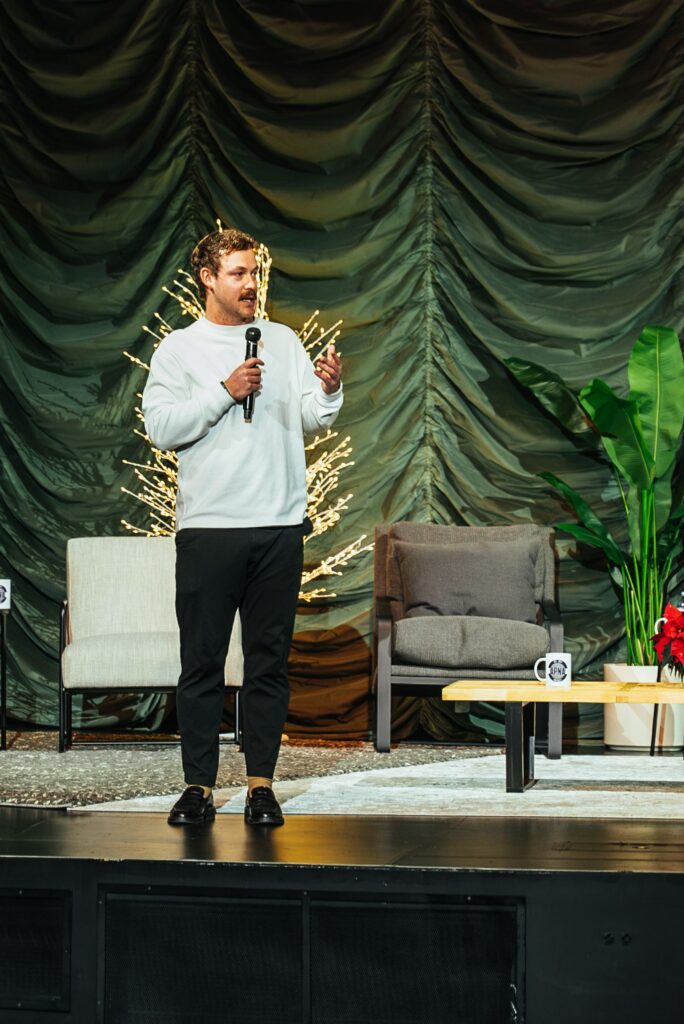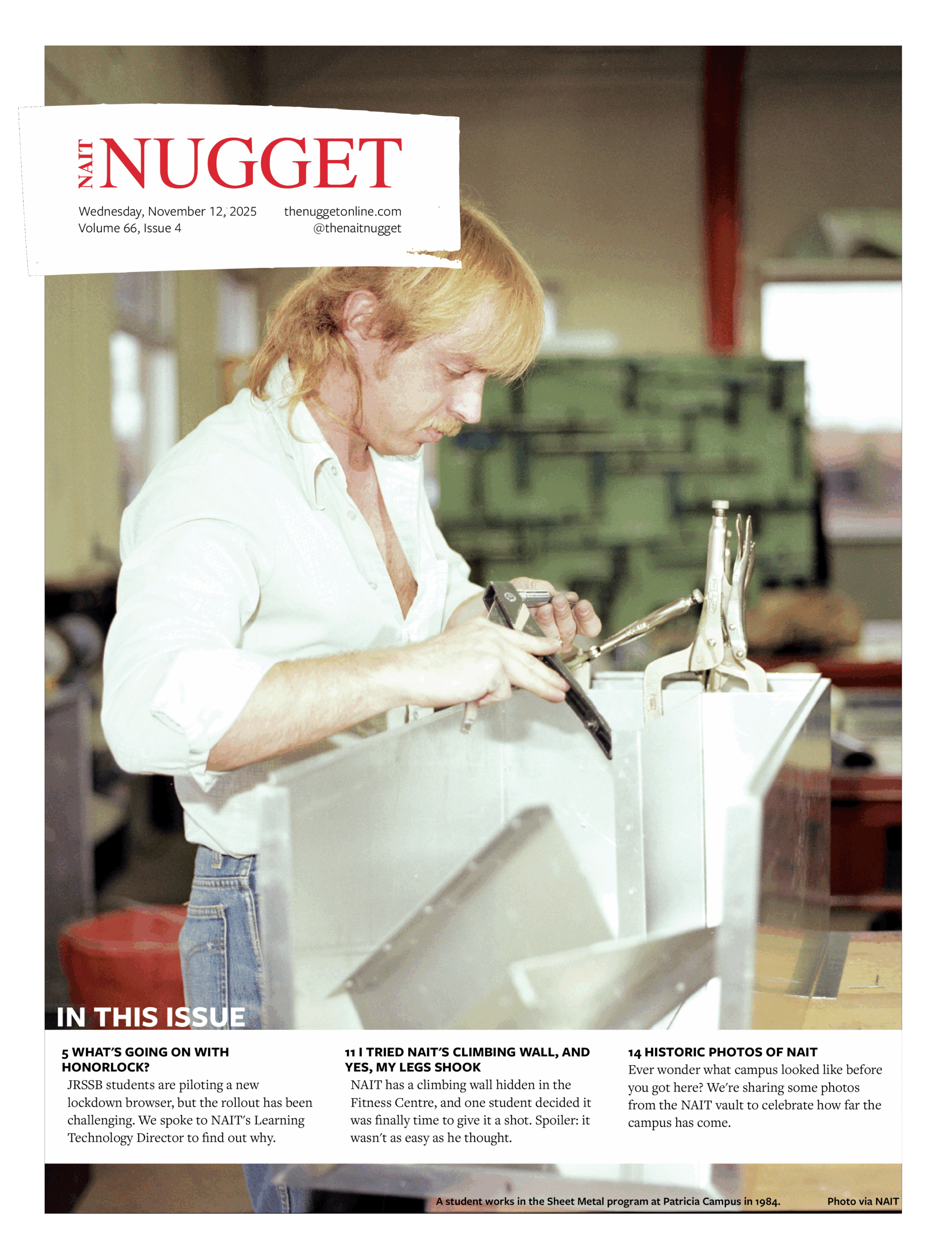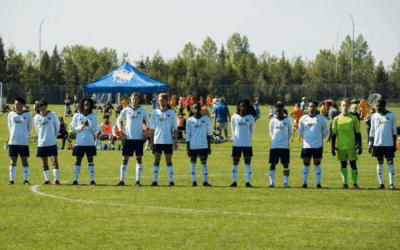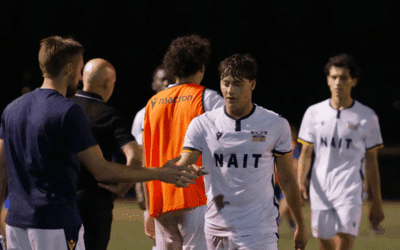While talking about mental health is becoming less taboo in many countries, the world of sports is a little behind. But the hosts of 2 Mutts Hockey Podcast, Joshua Marshall and Clay Vanderham, want that to change.
At their Nov. 25 event, “The Invisible Game: Mental Health in Sports,” local and national celebrities discussed the stigma around mental health in youth sports and ways to combat it in the modern age.
And although events like this “[are] a step in the right direction,” event speaker Sonny Sekhon believes there “is still work to be done.”
“When I was growing up, events like this didn’t exist,” Sekhon said to the crowd in his opening remarks. “The advice back then was to tape it up, throw some ice on it, and keep going. But, spoiler alert, that doesn’t work.”
Major leagues have made progress, youth sports still have work to do
All four major sporting leagues in North America now have a mental health program for players to access. In the NHL, the player assistance program has become a more familiar name for hockey fans as more and more players enter it. Created in 1996 between the NHL and NHLPA to aid athletes with issues ranging from mental health concerns to drug or alcohol addictions, the program has seen a dramatic increase in usage in recent years. In May, five players had entered the program in 2024—as many as the previous three years combined, the Canadian Press reported. And there may be more, as participation in the program is not made public unless the players choose to do so.
That trend has only continued in the league’s 2024/25 season. Goaltender Jack Campbell officially entered the program on Oct. 4, and Forward J.T Miller announced on Nov. 19 he was taking an indefinite leave of absence for “personal reasons.”
However, while many sports leagues have adopted systems to support their athletes and begun to embrace the challenges of dealing with mental health, the movement still has work to do in youth sports. Playing sports has been shown to help grow self-esteem and mitigate mental health issues. A study published in the National Library of Medicine showed a 25 per cent drop in the odds of suffering from depression and a 12 per cent drop in suicidal ideation as sports participation increased.
But the unfortunate reality is that many youth athletes will quit their sports before they become adolescents, with 70 per cent dropping out by age 13.
“For a lot of kids, it comes down to the fact that sports become less fun and more about the concept of what success is from more of an adult’s eyes than a child’s eyes,” said Kody Moffatt, the Division Chief of Pediatric Sports Medicine at Children’s Nebraska in an interview with USA Today. “Kids want to stay active, play and have fun with their friends, and winning and losing is something that they care less about.”
The absence of mental health resources in youth sports was why Tyler Smith, a Humboldt Broncos bus crash survivor and former junior hockey player, wanted to tell his story to people across the country.

“I’ve realized that people are struggling, and I’ve had a lot of conversations afterwards with people … and it always brings me back to why I keep doing this,” Smith said in an interview with the Nugget. “A lot of these kids are young hockey players … and to hopefully generate a community around this event is something that I think Josh [Marshall] and the team wanted.”
“People are going through it, and to be able to offer hopefully that one little thing that can make an impact or inspire. That’s what it all comes back to … statistics prove that we are struggling as a society. So, if we can keep generating more speaking opportunities in communities and at events, I think that is a win-win.”
The event also included a hot stove—a term used to describe discussion and analysis of sports like hockey and baseball—hosted by Hockey Night In Canada’s Elliotte Friedman.
The panel featured a lineup of local celebrities and important figures such as Kurt Hill, General Manager of the Edmonton Oil Kings; Kevin Lowe, Governor of the Edmonton Oil Kings; Mark Jones, C.E.O. of the Central Alberta Child Advocacy Centre; and Mat de Moissac, a Sport and Performance Psychologist.
They discussed ways that they handled their mental health as athletes and dealt with their own issues in the past. Speaking to a young audience, the group related their stories to how young players and coaches can promote a positive environment for players to be open about their well-being.
“Events like this, they can be pretty heavy. Josh’s message of the kinds of things he’s been through and, obviously, Tyler, what he went through. When you hear that, it’s a lot,” Friedman said in an interview with the Nugget.
“You’re going to have bad days, and you’re going to have things that aren’t going to work … people think it’s the end of the world. It’s not. And if I can convince people and help convince people with the rest of the group here that it’s really not the end of the world, and you can learn your lessons, and you can come back. That’s important for me, that matters to me.”
The entire event dedicated significant time to encouraging the youth in attendance not to be afraid to seek help for mental health and endorsed the idea that a teammate’s job doesn’t stop when you leave the locker room—it extends to a personal side to make sure the team is doing well mentally too.
Where do we go from here?
In 2024, the conversation around mental health is evolving. And in a time where a Statistics Canada report says nationally, about one in five youth who felt their mental health was “good or better in 2019 no longer feel that way in 2023,” these improvements are needed now more than ever.
“What we’re seeing is continued decline in the mental and physical health of children and their overall outcomes,” said Sara Austin, founder and CEO of Children First Canada, in an interview with CTV News. “We’ve gone from bad to worse.”
But creating change and substantially impacting the community takes more than just a conversation.
As Sekhon said in his opening remarks, there “is still work to be done.” But with the help of a lineup of influential figures, the 2 Mutts Hockey Podcast hopes to inspire others to make the first step and follow in their footsteps.
“Investing in mental health is essential. A positive team culture is more than about winning games; it’s about being a good teammate and supporting your teammates on and off the ice,” Sekhon told the crowd. “Together we can keep making progress and show the world that talking about mental health isn’t a weakness; it’s strength.”






